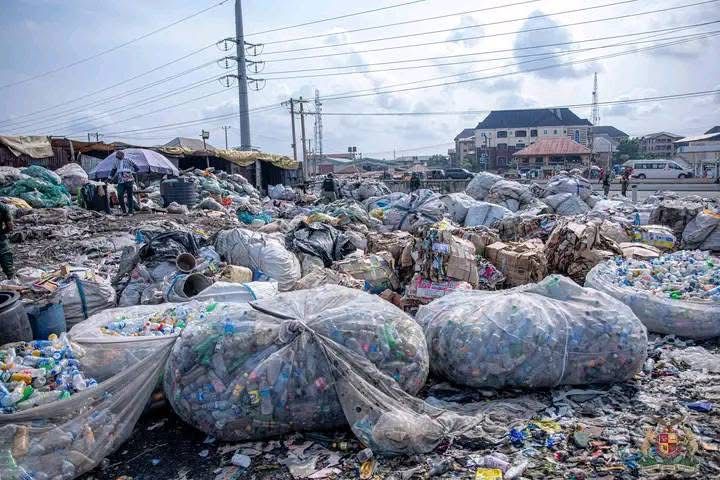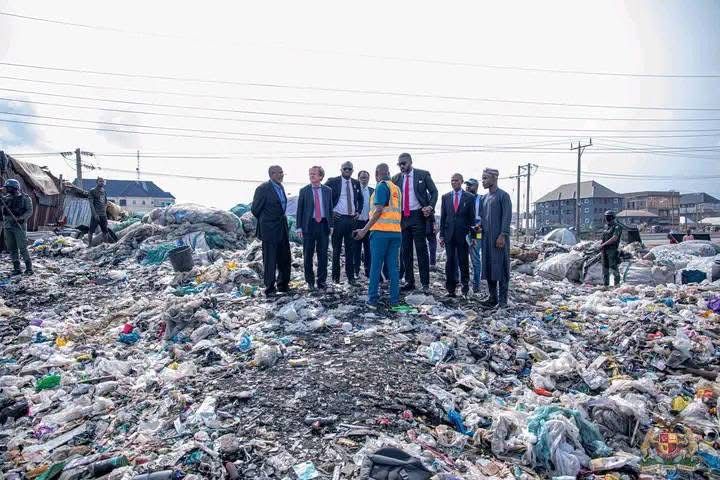By Evening Prince ( Environmental Expert )
Abia State, like many burgeoning regions, grapples with the escalating challenge of waste management. Our landscapes, once pristine, are increasingly scarred by overflowing dumpsites and burgeoning landfills, posing significant threats to public health, water sources, and the very air we breathe.
It is against this backdrop of urgent environmental concern that House of Assembly Bill (H.A.B31 of 2025 emerges, a timely and progressive piece of legislation poised to usher in a new era of environmental responsibility in our beloved state.

This proposed bill is a testament to foresight, firmly rooted in two globally recognized pillars of sustainable waste management: the Polluter Pays Principle (PPP) and Extended Producer Responsibility (EPR). At its core, the Polluter Pays Principle asserts that those who cause pollution should bear the costs of managing it to prevent damage to human health or the environment. It’s a fundamental tenet of environmental law that seeks to internalize environmental costs, making polluters accountable for the externalities of their activities.
Complementing this, Extended Producer Responsibility shifts the primary responsibility for the entire lifecycle of a product – from design to post-consumer waste management – to the producer. This isn’t about placing an undue burden on businesses; rather, it’s about incentivizing innovation and fostering a circular economy where waste is minimized, and resources are conserved.

The benefits of H.A.B 31 of 2025 are multi-faceted and far-reaching. Firstly, and most obviously, it directly addresses the menace of dumpsites and landfills. By making producers accountable for the end-of-life management of their products, the bill will significantly reduce the sheer volume of waste ending up in our already overstretched disposal sites. This translates to cleaner communities, healthier ecosystems, and a more aesthetically pleasing Abia.
Crucially, in a time where public sentiment regarding taxes is often a sensitive issue, H.A.B 31 of 2025 offers a refreshing alternative. This bill is not designed to levy new taxes on the populace. Instead, it strategically encourages manufacturers to fundamentally rethink their production processes. Faced with the responsibility of managing their products post-consumption, producers will be powerfully incentivized to design with the environment in mind – opting for recyclable, reusable, or biodegradable materials. This shift towards environmentally friendly materials will have a ripple effect, fostering a more sustainable industrial landscape within our state.
Furthermore, a truly transformative aspect of this bill lies in its potential to stimulate local economic growth.
The EPR framework will strongly encourage manufacturers to establish collection and recycling plants within Abia State. Imagine the creation of new jobs in the recycling sector, the development of local expertise in waste management technologies, and the establishment of a robust circular economy that keeps valuable resources circulating within our state rather than being discarded. This isn’t just about environmental protection; it’s about economic empowerment and diversification.
Ultimately, H.A.B 31 of 2025 isn’t targeting the populace with additional burdens. On the contrary, it’s about building an overarching environmental caution awareness across our state. It sends a clear message that environmental stewardship is a shared responsibility, with producers playing a pivotal role. By internalizing environmental costs and fostering a culture of sustainable production and consumption, this bill will empower us to safeguard our natural heritage for generations to come.
The time for decisive action on environmental protection is now. H.A.B 31 of 2025 represents a critical step towards a cleaner, healthier, and more prosperous Abia. Let us embrace this progressive legislation and pave the way for a sustainable future.
Evening Prince ( Environmental Expert )






